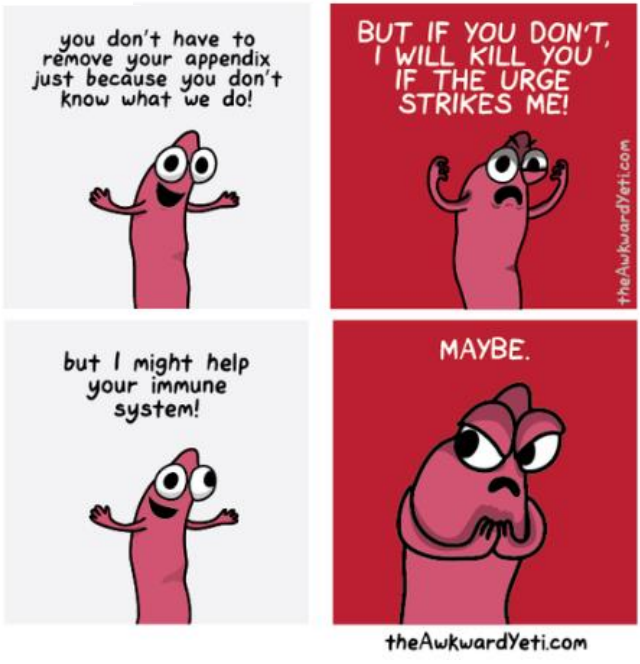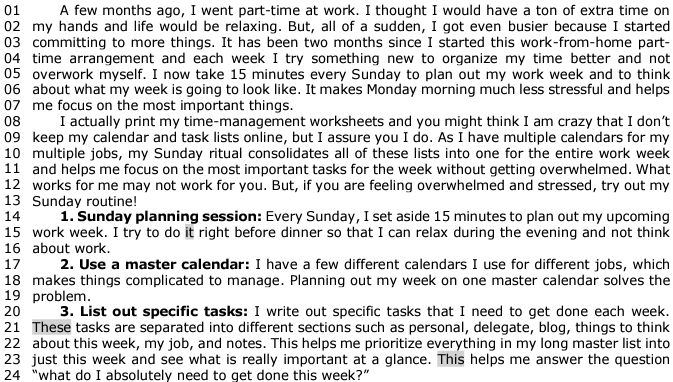Questões de Inglês - Orações condicionais | Conditional Clauses para Concurso
Foram encontradas 28 questões
In the cartoon below we see an appendix, the body part, saying the following:
1. you don’t have to remove your appendix just because you don’t know what we do!
2. BUT IF YOU DON’T, I WILL KILL YOU IF THE URGE STRIKES ME!
3. but I might help your immune system! 4. MAYBE.

Analyze the following statements about the cartoon and mark T, if true, or F, if false.
( ) The second sentence contains a conditional.
( ) Sentence number 3 is a promise.
( ) “Might” in sentence 3 and “maybe” in sentence 4 both express possibilities.
The correct order of filling the parentheses, from top to bottom, is:


Try these expert tips for a safer solo trip

(Available at: https://news.airbnb.com/try-these-expert-tips-for-a-safer-solo-trip/ – text especially adapted for
this text).
“If the weather improved, we would go to the beach. ”